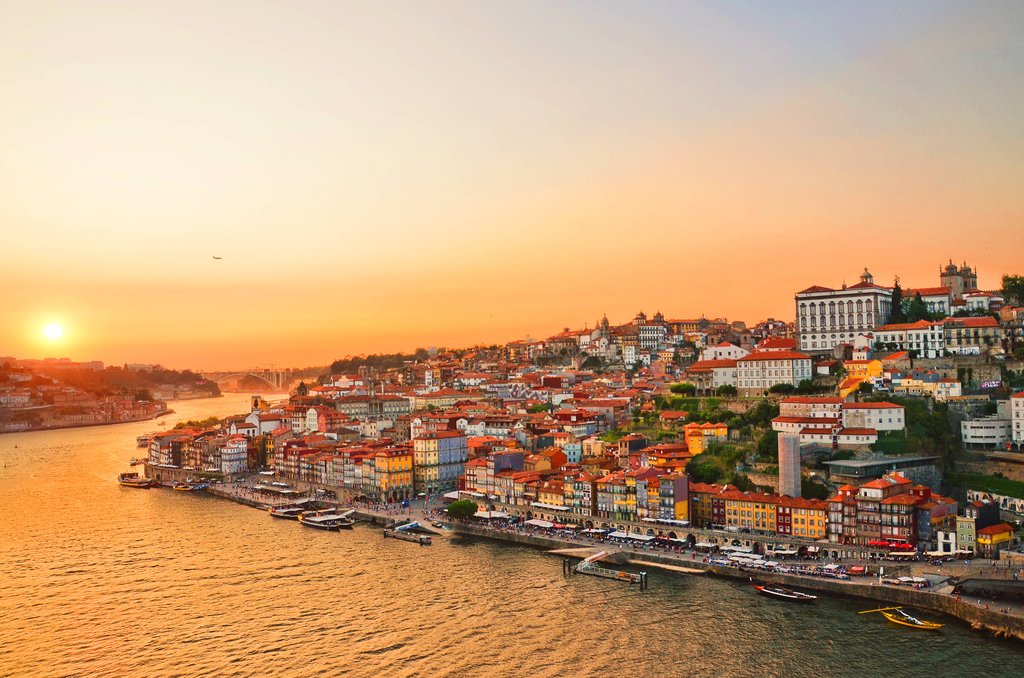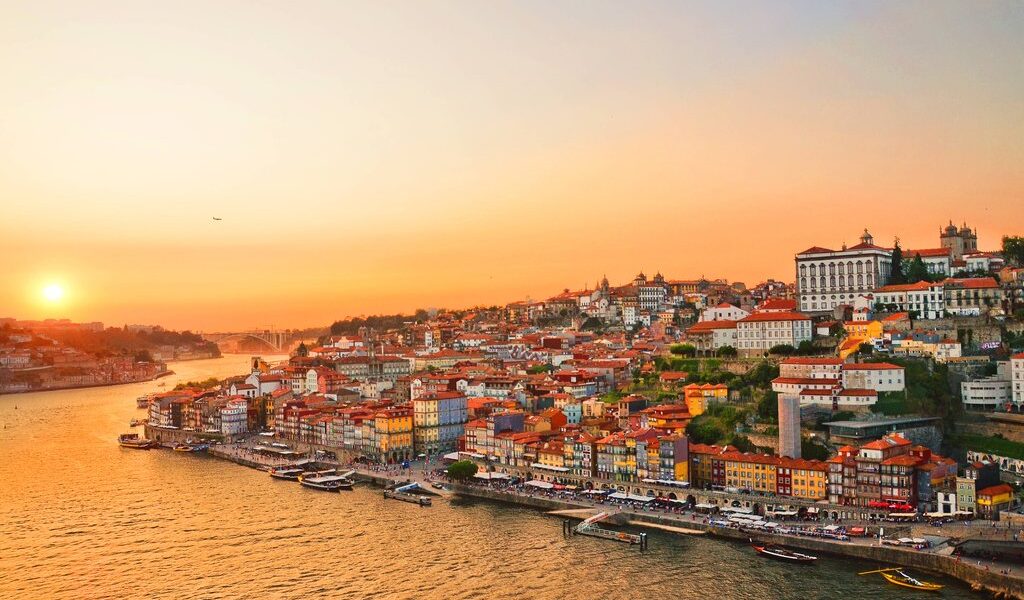
While Portugal is known for its year-round pleasant weather, it still experiences some variations in temperature. The country’s golden beaches and urban attractions draw crowds in the summer months, making shoulder seasons (spring and fall) an excellent time to travel. Below, you’ll find valuable tips to help you plan your trip.
## A Comprehensive Guide to Seasonal Travel Planning in Portugal
Portugal, a land of sun-kissed shores, historical cities, and vibrant culture, beckons travelers year-round. While blessed with generally mild weather, understanding the seasonal nuances can significantly enhance your travel experience. The climate across Portugal is characterized by hot summers and rainy winters. Evenings can bring a chill, so packing a sweater or a light jacket is always recommended, regardless of the season. During the summer months, lightweight shorts and t-shirts are ideal, while long pants are more suitable for the cooler winter months. The hottest temperatures are typically found in the southern and inland regions, particularly near the border with Spain. Coastal towns, such as **Faro**, benefit from refreshing sea breezes that temper the heat.
Summer brings a surge of visitors, particularly during weekends in major cities like **Lisbon** and **Porto**. The stunning beaches of the **Algarve** become a magnet for sun-seekers. While peak season inevitably leads to higher prices, it also guarantees favorable weather conditions and extended opening hours at numerous attractions.
Winter, on the other hand, presents an opportunity to take advantage of attractive deals on tours and accommodations, allowing for a more intimate and authentic experience. However, be prepared for occasional wind and rain; a raincoat is a must-have.
Navigating the seasons in Portugal requires careful consideration of your interests and preferences. The following table provides a detailed overview of each season, highlighting the advantages, disadvantages, ideal activities, and recommended destinations.
|
Season |
Pros | Cons | Best for | Where to Visit |
| Spring (Mar-May) | Spring is a delightful time to visit, as flowers bloom, filling the landscape with color. The weather is pleasantly cool, offering ideal conditions for exploring. Easter celebrations add a cultural dimension to your trip. | Expect larger crowds around holidays such as Easter and Pentecost, which may impact availability and prices. | Spring is perfectly suited for surfing, as the waves are consistent and powerful. Hiking and biking enthusiasts will also appreciate the milder temperatures. This season is also great for exploring popular sites in Portugal’s vibrant cities without the intense summer heat. | For a captivating Holy Week experience, visit **Braga**. The **Alentejo** region offers a culinary journey through food and festivals. Alternatively, head to **the Azores** for unforgettable whale-watching opportunities. |
| Summer (Jun-Aug) | Summer offers guaranteed good beach weather, allowing you to soak up the sun and enjoy the refreshing waters. Long daylight hours maximize your time for exploration and activities. Many main attractions extend their opening hours to accommodate the influx of tourists. | Be prepared for peak season crowds and higher prices, particularly in popular destinations. Inland weather can be exceptionally hot, making it uncomfortable for some visitors. | Summer is the ideal time for sunbathing on Portugal’s stunning beaches and attending vibrant local festivals. | **Porto** offers a refreshing escape from the summer heat, while **Coimbra** or **Braga** provide alternatives to escape the crowded beaches of the Algarve. |
| Fall (Sep-Nov) | Fall boasts cooler weather, making it comfortable for exploring cities and historical sites. Prices are generally cheaper than in summer, and the crowds have thinned out considerably. | The weather can be unpredictable, with occasional rainfall, especially in northern Portugal. Pack accordingly. | Fall is perfect for exploring cities, visiting popular sites at a more leisurely pace, and indulging in the diverse regional delicacies. | The **Douro Valley** transforms into a spectacle of fall colors. **Sintra** offers a quieter and more intimate visit, while the **Algarve** experiences a significant reduction in tourist crowds. |
| Winter (Dec-Feb) | Winter provides opportunities for off-season deals on accommodations and attractions. Experience the magic of Christmas festivities and enjoy exploring with thinner crowds. | Limited opening hours at some attractions may require careful planning. Resorts and beach sites in southern Portugal may be closed during this period. | Winter is an excellent time for celebrating New Year’s Eve, browsing holiday markets, visiting museums, and relaxing in cozy cafés. | **Lisbon** and **Porto** offer a wealth of urban sightseeing opportunities. The **Algarve** continues to offer surfing opportunities, while the **Serra da Estrela** provides a unique experience for skiing enthusiasts. |
## Spring in Portugal (March to May): A Season of Rebirth
Spring in Portugal signifies a welcome departure from the wet and cold of winter. As the days lengthen and the temperatures rise, the landscape bursts into life with blossoming flowers, creating a picturesque setting for outdoor activities such as hiking, biking, and exploring the countryside. This season offers a sweet spot between the quiet of winter and the bustle of summer, making it an excellent time to beat the crowds. However, it’s important to note that Easter and Pentecost, celebrated towards the end of May, tend to be busier periods, so plan accordingly if you’re seeking a more tranquil vacation.
Late winter and early spring are particularly favored by surfing enthusiasts. Consistent and powerful waves can be found along the **Algarve** coastline, as well as in **Ericeira** and **Peniche**, located north of **Lisbon**. These areas offer a diverse range of breaks suitable for surfers of all skill levels. April and May also mark the prime season for whale watching in the remote islands of **the Azores**. Witnessing these majestic creatures in their natural habitat is an unforgettable experience.
For those who don’t mind navigating the Easter crowds, the Semana Santa (Holy Week) celebrations provide a unique cultural experience. These deeply religious events take place throughout the country, with one of the largest and most impressive celebrations occurring in the northern city of **Braga**. Home to numerous significant churches and religious sites, **Braga** offers a captivating insight into Portugal’s religious heritage.
### Spring Events:
* **Beer Generation, Lisbon**: Craft beer aficionados will delight in this mid-March festival held in Lisbon. The event features a wide array of artisanal beers for tasting, accompanied by live music and a lively atmosphere.
* **Semana Santa, nationwide, especially Lisbon**: Throughout April, Portugal celebrates Holy Week with colorful and elaborate processions. Images of saints are paraded through the city streets, creating a spectacle of faith and tradition.
* **Festa das Cruzes, Barcelos**: In May, the northern town of **Barcelos** hosts the Festa das Cruzes (Festival of the Crosses). This vibrant celebration includes religious processions, concerts, and a dazzling fireworks display.
## Summer in Portugal (June to August): Sunshine and Festivities
Summer is undeniably the high season in Portugal, attracting travelers from all corners of the globe eager to bask in the sunshine and explore the country’s stunning landscapes. The lure of vacation time and the promise of warm weather draw visitors to Portugal’s beaches, islands, and bustling urban centers. If you plan on spending your summer days by the sea in the **Algarve**, it is highly recommended that you make your arrangements well in advance to secure your preferred accommodations and activities. It is important to note that August is the most popular month for European tourists, meaning that June and July offer slightly more relaxed conditions.
For a quieter and more secluded vacation, consider venturing away from the bustling **Algarve** and **Lisbon** and exploring some of the country’s less crowded areas. Portugal’s national parks, with their charming historic towns, offer a peaceful retreat. Alternatively, you could head north to immerse yourself in **Braga’s** rich religious heritage or explore **Coimbra’s** captivating medieval center.
### Summer Events:
* **Alentejo Cork Harvest**: From mid-May to mid-August, the **Alentejo** region comes alive with the annual cork harvest. Experience this ancient tradition firsthand and witness the sustainable process of extracting cork from the region’s abundant cork oak trees.
* **Festa de São João, nationwide**: Taking place on Midsummer’s Eve on June 23rd, this Porto-based celebration is dedicated to Saint John the Baptist. This lively festival sees revelers playfully hitting each other with garlic flowers or plastic hammers – a tradition believed to have originated from pagan courtship rituals. Expect street concerts, delicious food, and spectacular fireworks.
* **MEO Marés Vivas, Vila Nova de Gaia**: This annual music festival takes place in **Vila Nova de Gaia**, a city adjacent to **Porto**, during the month of July. The festival showcases a diverse range of local and internationally renowned rock and pop artists.
* **Feira de São Mateus, Viseu**: The town of **Viseu**, located southeast of **Porto**, hosts this month-long August fair in honor of Saint Matthew. As one of the oldest celebrations in Portugal, the fair features an abundance of food stalls, handicraft vendors, and exciting outdoor concerts.
## Fall in Portugal (September to November): A Season of Harvest and Tranquility
If you prefer to avoid the large crowds often associated with peak season, fall presents an excellent opportunity for urban sightseeing in Portugal. While popular destinations, such as **Sintra**, remain relatively busy well into September, they tend to become significantly quieter by mid-October. The weather typically remains pleasantly warm until November, allowing for comfortable exploration. As fall is considered shoulder season, you can expect to find lower prices on tours and accommodations compared to the preceding summer months.
September and October are particularly good months to visit the **Algarve**. The summer crowds have largely dissipated, allowing you to enjoy the last of the pleasant beach weather in a more relaxed atmosphere. However, it’s worth noting that many hotels and restaurants in coastal towns may close for the off-season by November.
For those who are drawn to hiking and the vibrant colors of autumn foliage, a trip north to the **Douro Valley** is highly recommended. This renowned wine-producing region comes alive in the fall, when the grape harvest is in full swing, offering breathtaking rustic scenery and opportunities for wine tasting.
### Fall Events:
* **Festa de Nossa Senhora dos Remédios, Lamego**: Those exploring the **Douro Valley** can experience this month-long celebration. Parades, exhibitions, and concerts are held in the city of **Lamego** from mid-August to early September.
* **Feira Nacional do Cavalo, Golegã**: If you have an interest in horses, don’t miss this popular fair held in **Golegã** in November. Here, you’ll have the chance to witness local equestrians competing in dressage events while wearing traditional riding costumes.
## Winter in Portugal (December to February): Cozy Charms and Off-Season Delights
Winter marks the off-season in Portugal. While some parts of the country may experience rainy and cold conditions, the weather rarely becomes severely cold, and there are still plenty of opportunities for enjoyable activities during these months. Late winter is considered the best time for surfers to catch the most consistent waves along Portugal’s Atlantic coastline. Although beach resort towns will be mostly shut down, winter visitors can benefit from the tranquility and enjoy having the beaches virtually to themselves, often at significantly reduced prices.
Despite Portugal not being widely known for its snow, the **Serra da Estrela** mountain range is home to a small ski resort. With its gentle slopes, it’s the perfect destination for beginners who want to try their hand at skiing or snowboarding.
For those who prefer indoor activities, **Lisbon** or **Porto** offer a wealth of cozy cafés, fascinating museums, and port wine tasting experiences, all without the hustle and bustle of the summer crowds. Historic towns like **Évora** in the **Alentejo** region also provide a delightful and authentic cultural experience.
### Winter Events:
* **Christmas, nationwide**: During the Christmas season, cities and towns throughout Portugal are adorned with nativity scenes and twinkling lights. The main celebrations take place on the evening of December 24th, when most families attend midnight Mass.
* **Three Kings’ Day, nationwide**: Celebrated on January 6th, this post-Christmas holiday is commemorated with caroling, the exchange of sweets, and the consumption of *bolo rei* (a traditional ring-shaped cake made with fruit and nuts).
* **Carnival, Lisbon and Loulé**: Typically falling in February, Carnival marks the beginning of Lent and is Portugal’s biggest festival of the year. The festivities in **Lisbon** and the southern town of **Loulé** include singing, dancing, and flamboyant costumes.
**(Word Count: 1881)**
B-2183

